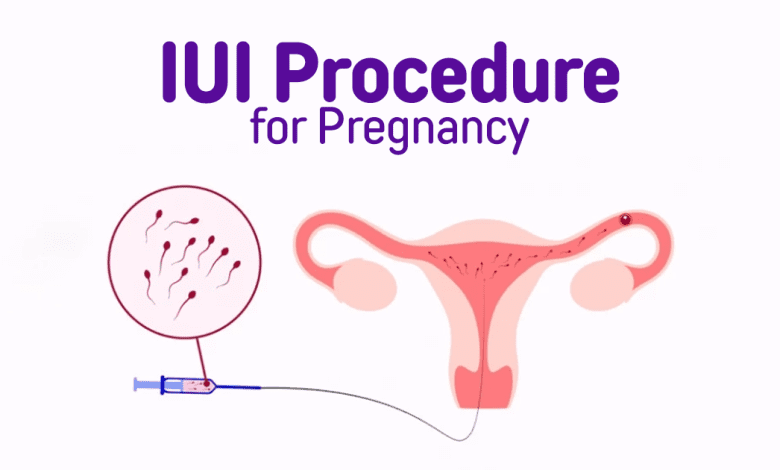Intrauterine Insemination (IUI) – What Does it Mean and What You Should Expect?

Intrauterine insemination (IUI) is an alternative fertility treatment for couples having difficulty getting pregnant. Formerly IUI was known as artificial insemination. In most cases, doctors will usually perform IUI without fertility medication. In case the medication is given, the patient will have to take fertility drugs before the doctor completes the procedure.
If you’re finding good fertility treatments to conceive, read this IUI guide, one of the earliest and most effective fertility treatments.
Without further ado, let us begin.
Intrauterine Insemination – How Does IUI Work?
In natural conception, sperm travels starting from the vagina, through the cervix, then to the uterus, and lastly to the fallopian tubes. Around 5% of sperm moves from your vagina to your uterus. Your ovary releases an egg, and then the egg moves to the fallopian tube. This is where the sperm and egg unite, and fertilization takes place.
On the other hand, in the IUI treatment, washed and concentrated sperm are directly injected into your uterus near the time your ovary releases eggs for fertilization. Because of the substantial reduction in travel time and distance, fertilizing the egg becomes much easier. Before the insemination procedure, you may use fertility medications to stimulate ovulation.
The sperm of your partner or a donor is assembled. It goes through a process known as sperm washing, which gathers healthy sperm from the semen. When sperm fertilizes an egg, the fertilized egg implants in the uterine lining and a woman becomes pregnant.
IUI is a simple procedure that is less pricey than other fertility treatments. This process can improve the odds of pregnancy for specific couples who have previously struggled to conceive.
What Should You Expect in an IUI Procedure?
Your doctor may prescribe medications to stimulate the release of mature eggs from your ovaries. Ovulation with more than one egg increases the chances of becoming pregnant. Ultrasound and bloodwork will be performed nearly a week after you begin taking medications to determine whether the eggs have matured.
Sometimes an IUI is performed without the use of medication; a woman ovulates naturally and then has the sperm implanted at the clinic while her ovulation period continues. When you are on your period, the IUI procedure may necessitate several hospital visits.
Based on the results of the tests, your doctor will tell you when you are ovulating and invite you and your partner to the clinic. In most cases, the IUI procedure is performed after 10 to 16 days of medication. On the day of the procedure, the male partner will provide a sperm sample, or the sperm will be thawed in the case of donor sperm.
The sperms will be washed and transported to a lab immediately. A few techniques are used in this process to remove dead sperms and other debris while keeping healthy and motile sperms.
When Do Couples Need IUI?
An IUI procedure is less expensive and less invasive than in vitro fertilization. If IVF is required, many couples need to undergo an IUI first. IUI may be the only treatment in need for some to become pregnant.
A couple may need IUI in such scenarios:
- Mild endometriosis
- Cervical mucus or other cervix problems
- Unexplained fertility
- Reduced sperm motility
- Ejaculation or erection issues
- Lower sperm count
- Couple willing to avoid passing a genetic condition to the child
- Ovulation-induced PCOS
You may not be able to undergo an IUI if you:
- have or had various pelvic infections
- have severe fallopian tube illness
- have endometriosis
- have both fallopian tubes removed or blocked
- have no sperm production
In these kinds of cases where IUI is not preferable, doctors may suggest you undergo an IVF.
IUI Procedure – Here is How the Process Works
Generally, IUI is a pain-free procedure. You can find the general IUI process below:
- You need to lie down on an exam table, and your doctor will insert a thin, flexible tube into your uterus through your cervix. The procedure will take between 5 to 10 minutes.
- The sperm will be passed through the cervix and inserted into the uterus via a thin tube.
- After the IUI procedure, you will remain on the exam table for 10 to 30 minutes.
- Following the procedure, you may experience minor uterine cramping or vaginal bleeding.
- The IUI procedure does not require anesthesia.
- After 15-16 days of the IUI procedure, you can take a pregnancy test.
Your fertility specialist may advise you to return two weeks after the home kit pregnancy results for a blood test because it is more sensitive in detecting pregnancy hormones after fertilization.
What are the Risks?
- There is little chance of infection after undergoing an IUI procedure. However, the best IVF centres ensure using sterile instruments in surgeries, so the risk of attracting an infection becomes unlikely.
- Ovarian hyperstimulation syndrome develops when the ovaries overreact to fertility medications.
- In extremely rare cases, ovarian hyperstimulation syndrome can result in fluid build-up in the chest and abdomen, kidney diseases, clotting, and ovarian twisting.
- If medications are used to induce ovulation, there is a risk of multiple pregnancies. Your doctor will try to balance the type and quantity of medication to prevent the release of too many eggs.
When Should You Visit Your Doctor?
If you are on fertility medication for IUI and experience any of the following symptoms, contact your doctor immediately.
Here are some symptoms to watch for:
- Severe pelvic or abdominal pain
- Light-headedness
- Sudden weight gain
- Vomiting
- Increase in the size of the abdomen
- Nausea
- Shortness of breath
For some couples trying to conceive, IUI is the best low-risk alternative. It’s important to remember that the success rate for IUI drops for elderly women and women who haven’t gotten pregnant after three cycles of IUI.
If you’ve been trying to conceive for a prolonged time and want to learn more about fertility options, book your appointment with Dr. Manish Banker at Banker IVF, the best IVF centre in Ahmedabad. Dr. Banker and his team of experts will work with you to achieve pregnancy through IUI or other effective fertility treatments, depending on your specific needs.





